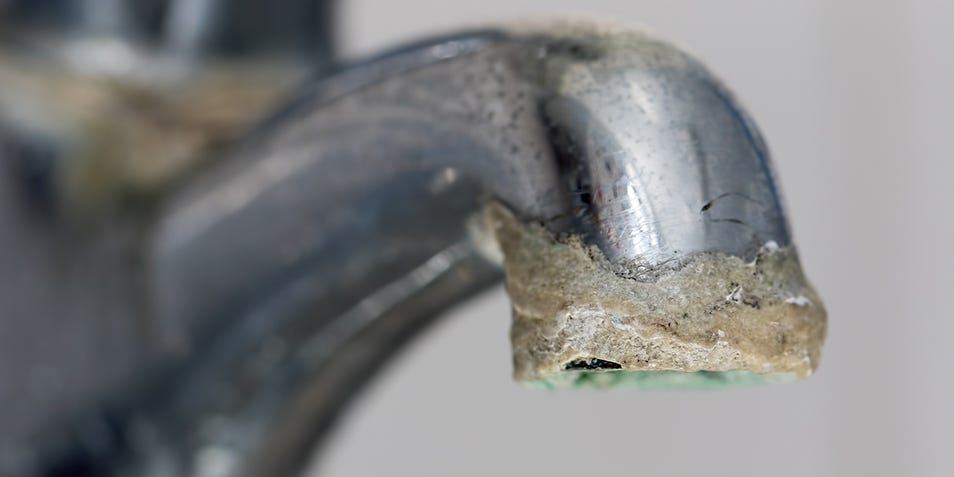The impact of hard water on my home

Living in a hard water region can impact your household in a number of ways, most notably through the build-up of limescale.
Limescale is a hard, chalky residue that can clog up your appliances and build up in your kitchen and bathroom if you live in a hard water area.
Hard water is high in mineral ions such as calcium and magnesium which it has picked up through the rock formation in the water cycle. The problem with limescale is that it can attract even more limescale, so even a small deposit can build up very quickly, binding strongly and becoming difficult to remove.
Signs of limescale as a result of hard water may include:
Off-white flakes or crusty residue in your kettle
Appliances such as your washing machine showing signs of damage (for example leakages, rough or smelly washing, or grey slime in the machine)
White or brown stains around your sink or bath plugs, or around the taps or tiles in your kitchen or bathroom
A clogged showerhead
White residue on your clothes after steam-ironing
Streaky white marks on your shower screen or dishes and drinking glasses
The positively-charged mineral content in hard water also reacts badly with the negatively-charged molecules in soap, creating a molecule with no charge, which means it is unable to dissolve in water. This makes soap less effective when used with hard water. This reaction can cause an accumulation of soap scum in areas of your bathroom and kitchen, such as in your shower or washing machine, which can also lead to the creation and spreading of bacteria, and bad odours. You may find yourself using a higher quantity of detergent in your washing machine and dishwasher in order to achieve the same results in soft water.
Your washing machine heavily feels the impact of hard water. A build-up of limescale can damage the internal pipes, drum, and heating element, while soap scum can cause the accumulation of residue, as well as a smelly washing machine and musty-smelling clothes. If you’re wondering why your clothes smell after washing, check out our guide for tips on eliminating these unpleasant odours.
Soft water is an advantage in your home because it is free from mineral ions, meaning limescale damage in your home is less likely to occur, and you can avoid soap scum, bad odours and bacteria. This in turn can save you money on replacing/fixing household pipes and appliances as they are less likely to be damaged. Soft water also doesn’t react badly with soap, meaning you can be more economical with detergent usage as well.
Arguably the best solution for hard water in your washing machine is to use a water softener, which works by removing and neutralising the minerals that make the water ‘hard’. Calgon is a hard water softener for washing machines, helping to prevent limescale and as a solution to a smelly washing machine.
